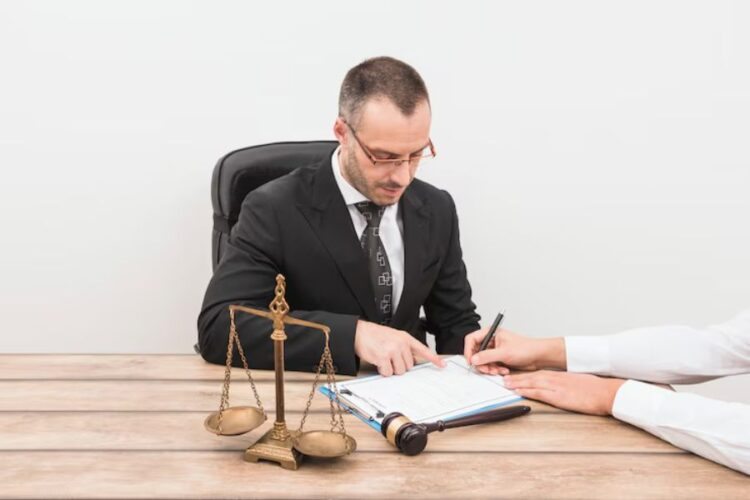You’re in the middle of a legal case, and it’s anything but simple. You may be dealing with multiple parties or an insurance company that keeps pushing back. Whatever the details are, one thing is clear: you need a competent personal injury attorney. Not just any law professionals, though. You need someone with the courage and determination to stand up for you and take on the complexities ahead.
But with so many lawyers in the United States alone, the search can feel overwhelming. To help you out, here’s how to find the right attorney for your complicated legal battle.
Get Recommendations From Trusted Sources
One of the most reliable ways to begin your search for a personal injury lawyer is by leaning on referrals. Talk to friends, family, or colleagues who’ve dealt with serious injury cases. They can tell you what worked, what didn’t, and who helped them through the process. A personal story often says more than a five-star review.
If no one close to you has been through something similar, try asking other professionals. Doctors, therapists, or accountants often cross paths with personal injury attorneys. They may know who has a solid track record and who to avoid.
These conversations can also help if you’re dealing with case rejection by the lawyer. Sometimes, a legal professional may turn down a case for unclear reasons. A referral might point you to someone more open to helping and give you insight into why others say no.
Tap Into State and Local Bar Association Directories
Every state has a bar association that keeps an official list of licensed attorneys. These directories list more than just names. They let you filter by:
- The type of practice area
- Law professional’s location
- Niche specialties like wrongful death or catastrophic injury cases
Many advocates earn certification as specialists in personal injury law. That usually means they’ve met higher standards and have deeper expertise in the field.
Unlike online review sites, these directories are maintained by official legal organizations, which makes them more reliable and up-to-date.
On top of that, some local bar associations offer low-cost or free initial consultations. This allows you to speak with an attorney early on without the pressure of a hefty upfront fee.
Search Legal Platforms That Focus on Credentials
Aside from the official, government-regulated sources, there are private platforms that dig deeper into a law expert’s background. These sites aren’t just about names and contact information. They highlight what matters: credentials, experience, and reputation.
Here’s what you can find:
- How long an attorney has been practicing
- Their specific focus on personal injury law
- Peer endorsements and client reviews or testimonials
- Awards, recognitions, or board certifications
You can also explore profiles of entire law firms, not just individual professionals. This is helpful if you’re looking for a firm with multiple in-house resources to manage a larger personal injury lawsuit.
Platforms like Avvo and Super Lawyers are good places to start. They help you compare legal experts side by side and give you a fuller picture, not just surface-level impressions.
Attend Initial Consultation With Prepared Questions
Once you’ve narrowed your list of potential lawyers, it’s time to meet them. This could be over a phone call, video chat, or in person. Either way, it’s essential to show up prepared. Bring questions like:
- Have you handled cases like mine before? If so, what was the outcome?
- What’s your general strategy for something this complex?
- How do your service fees work, and what costs should I expect?
- What challenges do you see in my legal claims?
Treat this first conversation like an interview—because it is.
Key Qualities To Look For
You now have the necessary tools to choose the best legal team. As you speak to them, keep an eye out for these important qualities:
Comprehensive Experience
As the saying goes, ‘Experience is the best teacher.’ That’s especially true when it comes to legal representation. You want someone who doesn’t just know the law but has successfully worked on cases similar to yours.
For example, handling a medical malpractice claim is very different from managing a car accident lawsuit. The stakes, procedures, and expert witnesses can vary. A lawyer who’s already navigated those waters will know what evidence to gather and how to respond when things get complicated.
Such background can give you more confidence that they’re not learning on the job, particularly in your case.
Clear and Honest Communication
Since we’re talking about complex claims, you want nothing but the truth and to fully grasp where your case stands. Sugarcoated answers or vague promises won’t help. That’s why clear, honest communication matters as much as legal skills. You need someone who doesn’t speak in circles or hide behind legal jargon.
A strong legal team will lay everything out in plain terms. That includes your chances, the possible setbacks, and what outcomes are realistically on the table. Simply put, they’ll tell you what you need to hear and know. This kind of honesty can make the process less overwhelming and help you move forward with clarity.
Effective Push Back
This trait is another side of strong communication skills but from a different angle. It focuses on standing up for you when it matters most. This is often called assertive representation.
Take insurance companies as an example. Their job is to review claims meticulously and minimize unnecessary payouts. They follow strict procedures, assess risks, and require detailed documentation before considering a settlement.
In these moments, you need a personal injury attorney who doesn’t just nod and negotiate softly. A sharp one pushes back firmly but with purpose. They know how to read between the lines, call out unfair tactics, and keep the pressure on until something shifts. They also make sure your voice isn’t lost in the process.
This kind of advocacy takes more than confidence. It demands grit, timing, and a deep insight into how insurers operate behind the scenes. The goal here is to secure a resolution that serves your best interests.
Empathy and Compassion
Pursuing an injury claim is rarely just a legal process. It’s personal. You’re not only dealing with the paperwork and deadlines but also pain, stress, and a major disruption to your life. Sometimes, it’s hard to hold it all together. That’s why working with a law advocate who listens, shows patience, and genuinely cares can do wonders.
Observe how they talk to you. Do they rush through the conversation or take time to hear you out? Do they engage with your story or go through the motions? Small signs can say a lot. A compassionate attorney won’t make you feel like just another file on their desk. Instead, they’ll offer support that goes beyond legal advice.
Closing Thoughts
It’s not easy to find the right lawyer when things are uncertain, and the case in front of you feels like a mountain. There’s much at stake and little room for trial and error. Still, the search doesn’t have to be a shot in the dark. With the tips shared here, you can cut through the noise and focus on professionals who are equipped to handle complicated claims.
Just take your time and be selective. The best legal representation is out there, ready to stand by your side and fight for the fair settlement you’re entitled to.










